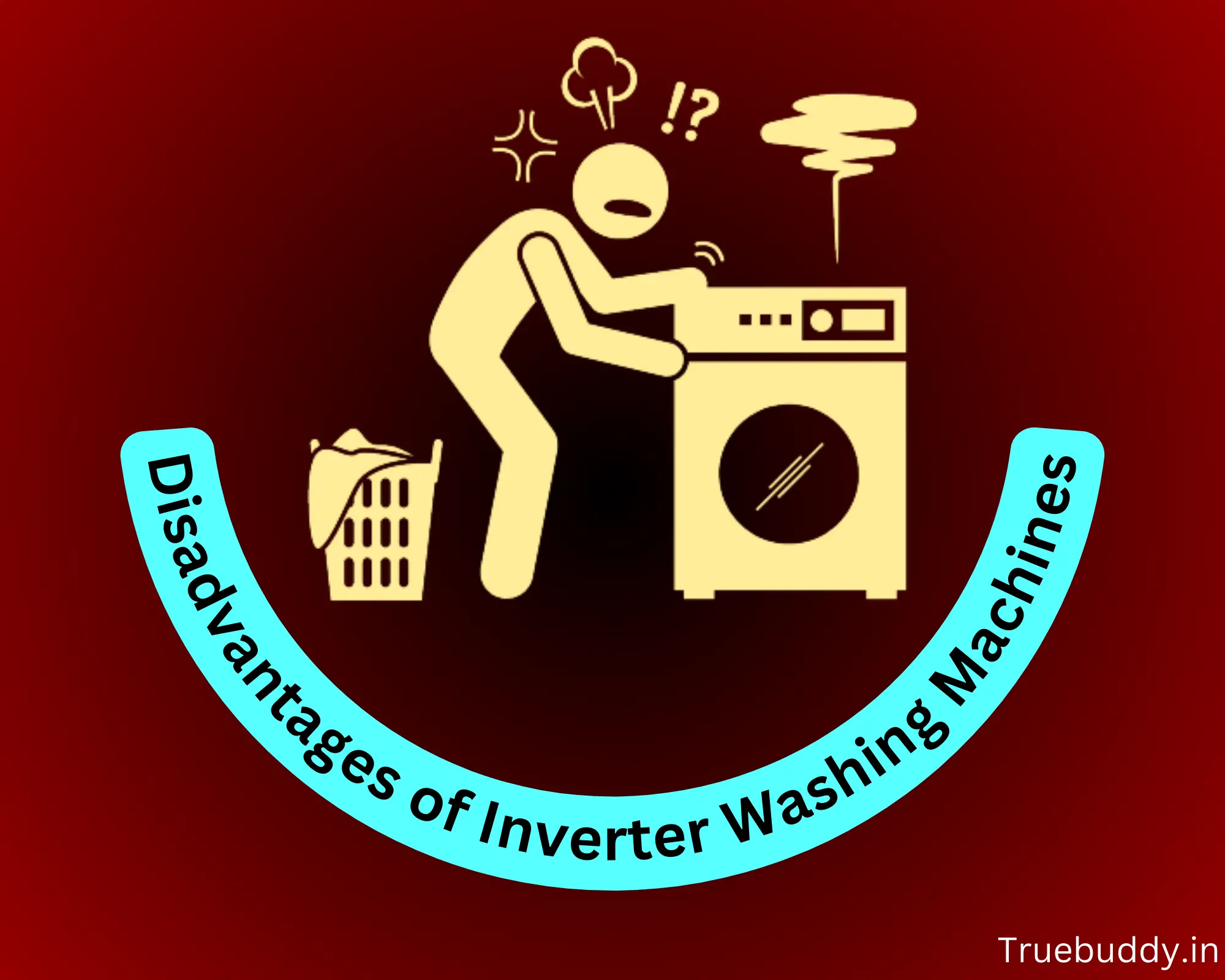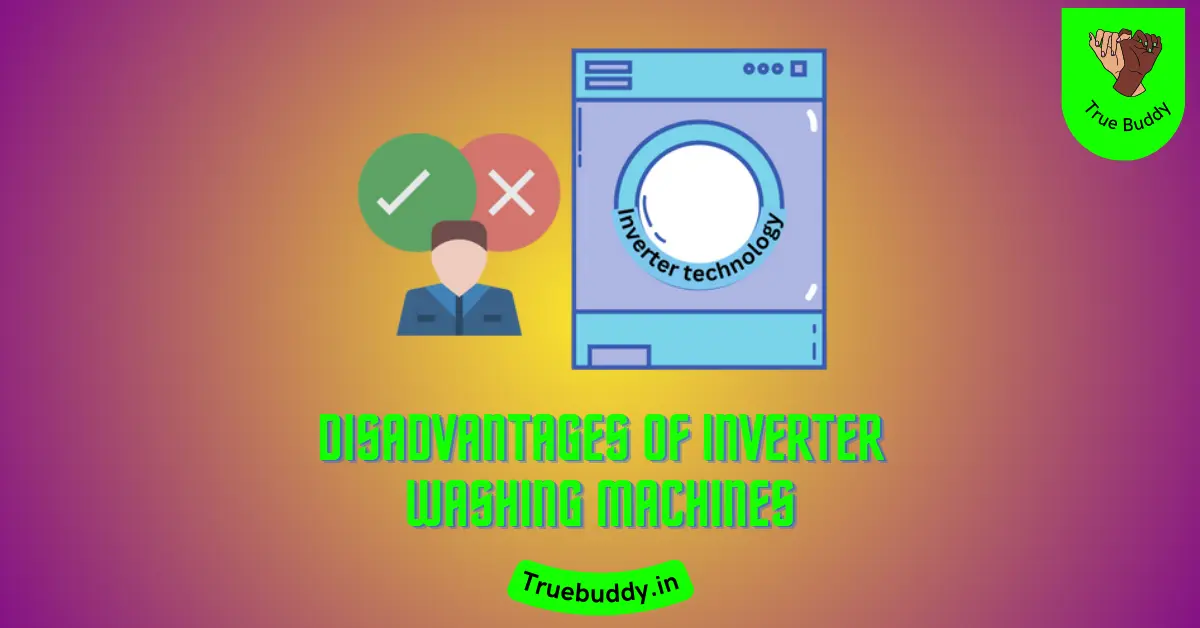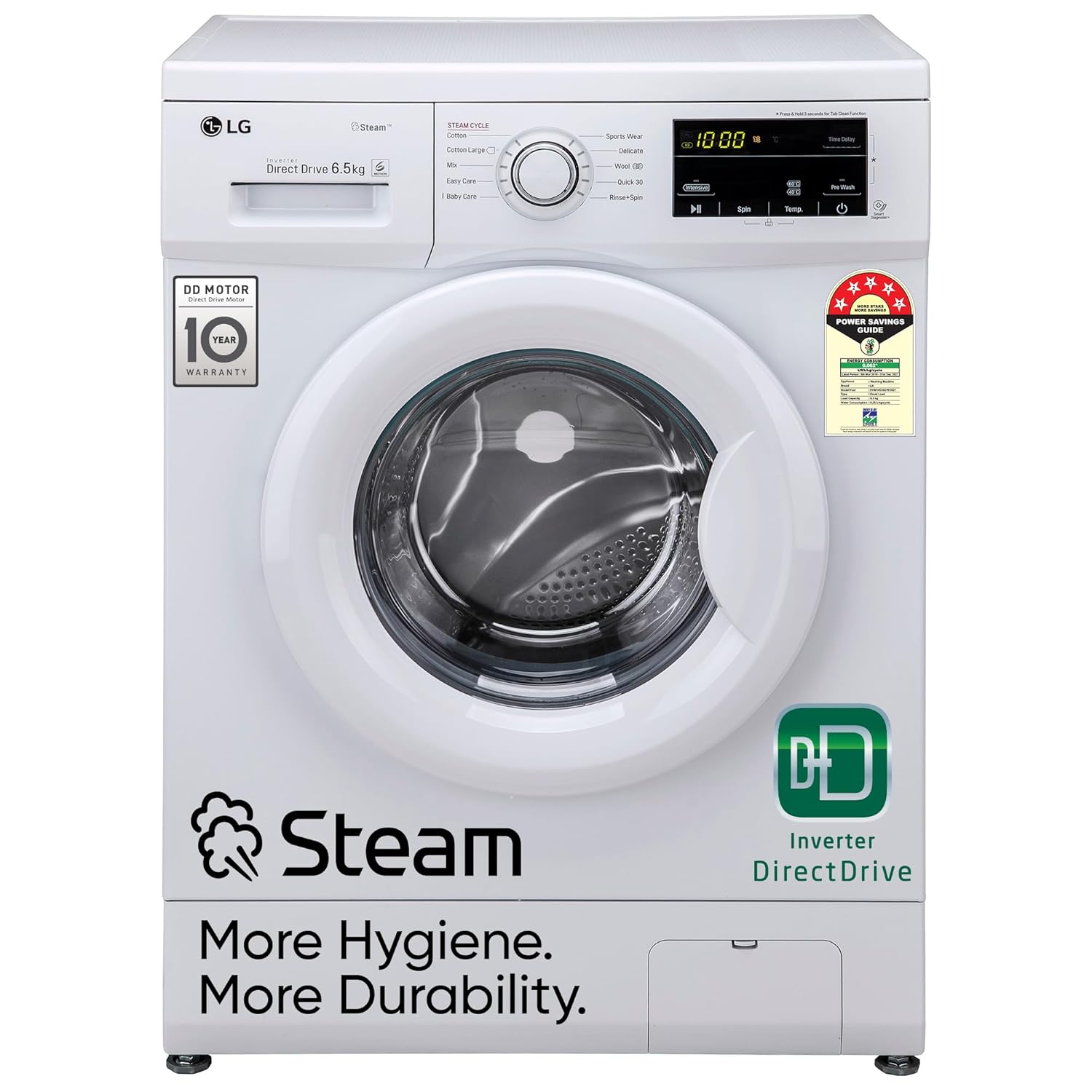Well, inverter washing machines are trending! They have become quite popular lately due to their energy-saving and clever technology. They use the inverter technology to adjust the motor’s speed, promising better performance and cost savings. While they have many advantages, it’s important to consider that no technology is perfect. Yes, inverter washing machines do have some downsides.
This article will look into the potential disadvantages of inverter washing machines, providing you with a balanced view of their pros and cons.
Recommended for You:
- What is Inverter Technology in Washing Machines? – Explained Here.
- Matic vs Normal Detergent: Understanding the Difference
- Energy-Saving and Smart: 10 Best Inverter Washing Machines in India

Disadvantages of Inverter Washing Machine
1. Higher Initial Cost
One of the main disadvantages of inverter washing machines is their higher upfront cost than regular washing machines. The advanced technology and brushless motors make them more expensive to manufacture. The higher price might be a concern for budget-conscious consumers, even though long-term energy savings could make up for it.
2. Repair and Maintenance Costs
While inverter washing machines are designed to be durable, their repair and maintenance costs can be higher than regular washing machines. Inverter motors are complex electronic parts that might need specialized expertise and parts for repairs. Fixing an inverter motor could be more expensive than a regular motor with replaceable brushes.
3. Voltage Fluctuations
In areas with unstable power supply, inverter washing machines might face challenges. The inverter technology is sensitive to voltage fluctuations, which might affect the motor’s performance. Frequent fluctuations could lead to motor issues, affecting the machine’s efficiency and reliability.
4. Electronic Failures
Like any electronic appliance, inverter washing machines can be prone to electronic failures. The complex circuits and components in the inverter technology might malfunction, impacting the motor’s performance. Though safety mechanisms are in place, the risk of electronic failures remains.
5. Noise and Vibration
Inverter washing machines are generally quieter, but they might still produce noise and vibration during use. While the noise level is lower, some users might find it bothersome, especially if the laundry area is close to living spaces. Uneven loads or improper installation could worsen vibration issues.
6. Overwhelming Features
Inverter washing machines often come with various features and wash programs, which might be overwhelming for some users. The abundance of options may lead to confusion and difficulty in choosing the right program. Some users might prefer a simpler washing machine without unnecessary complexities.
7. Actual Energy Savings
Inverter washing machines promise energy savings, but the actual amount may vary depending on individual usage and electricity costs. Users with irregular laundry loads might not experience significant savings, making the higher initial cost less worthwhile.
8. Availability and Service Centers
Inverter washing machines might not be as widely available as regular washing machines in some regions. Finding service centers and skilled technicians to repair them could be challenging, especially in rural areas.
9. Learning Curve
The advanced technology of inverter washing machines might present a learning curve for some users. Older or less tech-savvy users might find it challenging to navigate the machine’s settings efficiently.
10. Environmental Impact
Inverter washing machines require raw materials and energy-intensive manufacturing processes, contributing to their environmental impact. Although they save energy during use, their production phase should also be considered.
Top Three Best Inverter Washing Machines in India – Expert’s Choice
FAQs about the Pros and Cons of Inverter Washing Machines
Are inverter washing machines more energy-efficient than regular washing machines?
Yes, inverter washing machines are more energy-efficient than regular washing machines. The inverter technology allows the motor to adjust its speed based on the load and wash cycle, resulting in optimal energy consumption and potential cost savings.
Do inverter washing machines offer better washing performance?
Inverter washing machines can offer better washing performance because they can adjust the motor’s speed and rotation as needed. This precision allows for gentler treatment of delicate fabrics and effectively cleans heavily soiled clothes.
Are inverter washing machines quieter during operation?
Yes, inverter washing machines are generally quieter during operation compared to regular washing machines. The absence of belts and pulleys reduces mechanical movements, leading to reduced noise levels and a quieter laundry experience.
Are inverter washing machines more expensive to purchase?
Yes, inverter washing machines tend to have a higher upfront cost compared to regular washing machines. The incorporation of advanced technology and brushless motors contributes to the higher price tag.
Do inverter washing machines save on electricity bills?
Yes, inverter washing machines can lead to savings on electricity bills. Their energy-efficient operation results in reduced energy consumption, especially for households with frequent laundry loads.
Can voltage fluctuations affect the performance of inverter washing machines?
Yes, inverter washing machines can be sensitive to voltage fluctuations. If the power supply experiences frequent fluctuations, it may impact the machine’s efficiency and reliability.
Are there any potential drawbacks to using inverter washing machines?
Yes, while inverter washing machines offer many benefits, they do have some potential drawbacks. These may include higher repair and maintenance costs, electronic failures, and a higher learning curve for users.
These frequently asked questions shed light on the advantages and disadvantages of inverter washing machines, providing potential buyers with valuable insights to make informed decisions based on their specific needs and preferences.
Conclusion
While there are many advantages of inverter washing machines, they have some downsides. The higher initial cost, repair expenses, sensitivity to voltage fluctuations, and electronic failures are factors to consider. We hope this article will help you to weigh these factors against the energy savings and other benefits to make an informed decision. As technology advances, manufacturers may address some disadvantages, making inverter washing machines even more appealing in the future.



